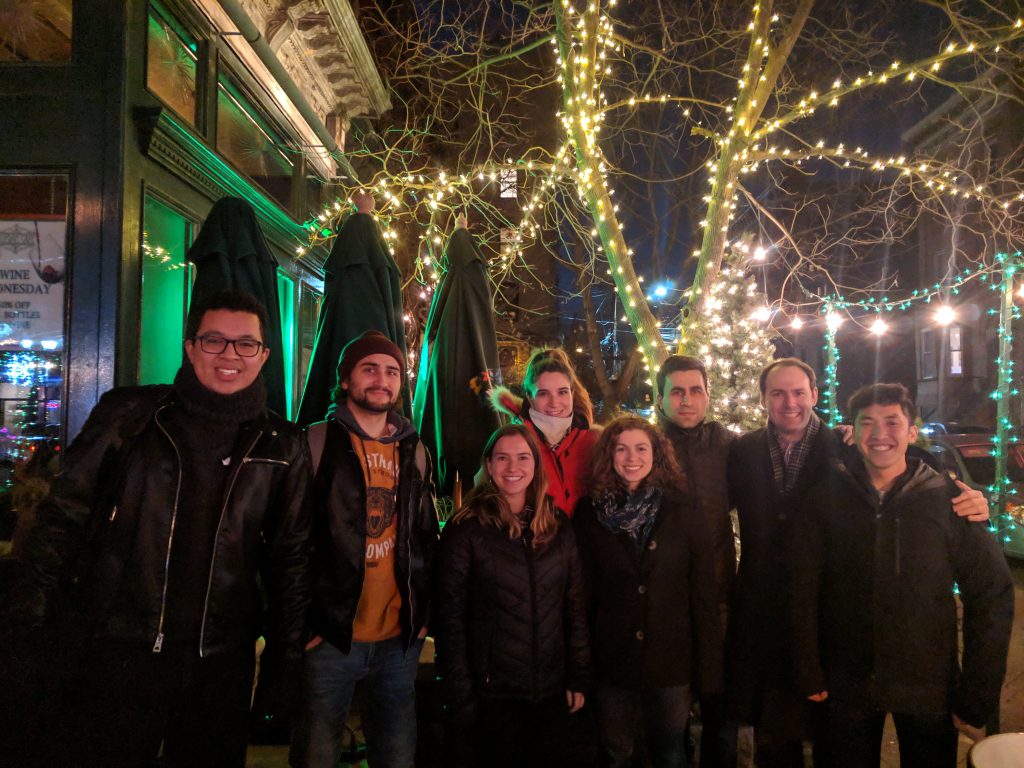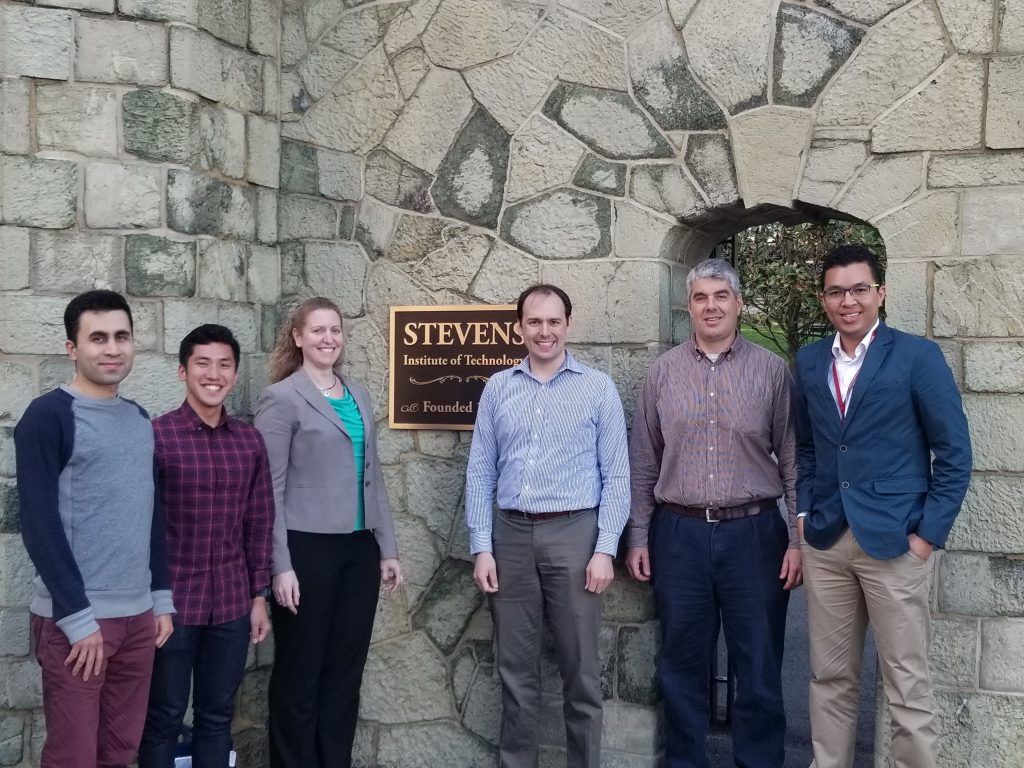Time: Thursday OCT 4th, 2018
Location: CCSE lab, Babbio, Stevens Institute of Technology.
Title: Allocative Mechanisms And Information Exchange In Task Processing And Interactive Networks
Abstract: This thesis investigates analysis techniques and mechanisms for exchanging and valuating resources and information in a task processing network of elements (TNE) and interactive social networks. For a federated TNE, a trusted auctioneer uses a mechanism to allocate resources to computational tasks and suggests prices for exchanging resources across a federation. An operational mechanism allocates processing, storage and communication resources to computational demands. This model finds an efficient solution to combinatorial routing with technical and financial constraints. Using mixed-integer linear programming (MILP) formulation, the operational model finds an optimal solution to processing tasks, allocating links, storing and delivering data to destinations. The auctioneer assumes a federation of self-centric and rational strategic participants/bidders/federates and simulation results show improvement in collective and expected values for federates. For mechanism design in a federated TNE, this research investigates an auctioneer equipped with auction-based algorithms to drive behavior of decentralized components towards higher collective-efficient metrics. This work formulates five auction-based algorithms for exchanging resources and combinatorial routing in a federated network: 1) linear program with binary search for prices, 2) first-price reverse-bid double auction, 3) non-linear searching for prices, 4) online algorithm with closed-form solution for prices, and 5) virtual pricing in a multi-source and multi-hop routing case. Metrics for numerical validation include normalized bids and prices, collective values, and pricing convergence rate of algorithms. Extensive simulation runs using hundreds of topologies with different configurations of elements and federates show better computational performance and higher economic efficiency for the online algorithm with a closed-form and variation-reducing solution for prices. Finally, this thesis investigates incentivizing mechanisms for information exchange in interactive social networks by clustering and modeling viral topics on social networks as a collective result of micro-level behavior of interactive components (participants). Analysis investigates the nature of influence and interactions on social networks. A data-driven approach observes endogenous and exogenous influences on emergence of linguistic topics and content on Twitter based on metrics such as popularity, burstiness, relevance score, consolidation, and hierarchal and temporal similarities. Conclusions outline future work to capture behavioral metrics of users on evolution of content and discourse in the interactive social network.


